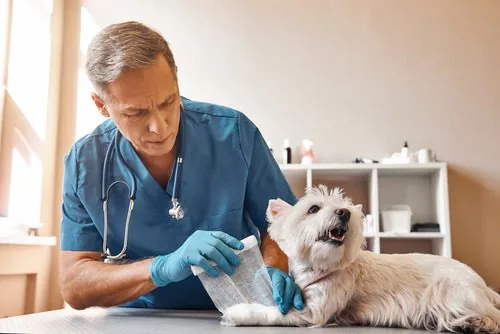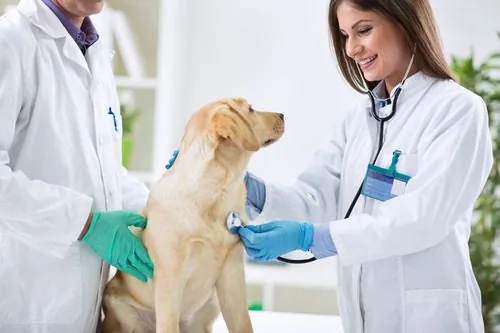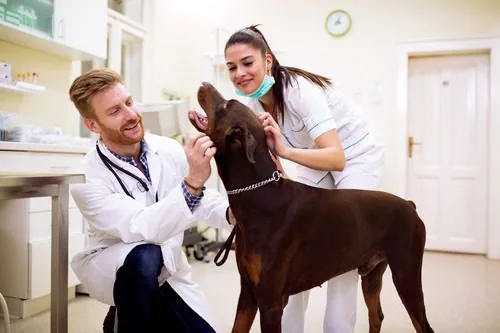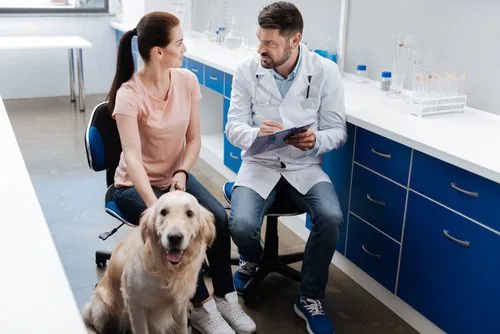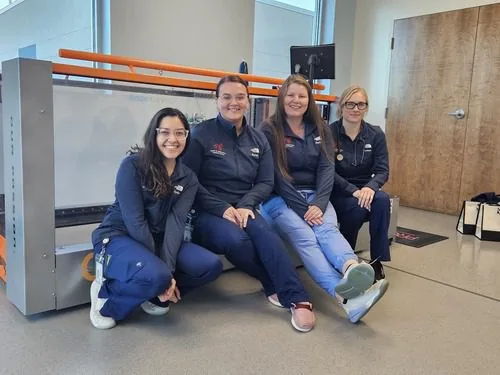Can A Cat Get Diabetes? 5 Signs and Symptoms to Look Out For
Although diabetes is a relatively common medical condition in humans, many animal lovers may be surprised to find out that animals can actually have diabetes as well. Unfortunately, this can include many animals that we keep as pets, and this includes cats and dogs.
Symptoms of Diabetes in cats are actually pretty similar to the symptoms of diabetes in humans. Signs like excessive thirst, weight changes, and appetite changes are common signs of diabetes in both animals and humans.
In this article, we will describe all of the most common signs of diabetes in cats that cat owners should look out for. We will alsoexplain how cats can get diabetes and what the treatment is for diabetes in cats. Alright, let’s get into it.

Can Cats Get Diabetes?
Yes, cats can absolutely get diabetes, and both type one and type two diabetes can occur in cats. Diabetes is a medical condition that occurs when the body doesn’t produce enough insulin. Insulin is a hormone that is released by the pancreas that reduces blood sugar levels when it gets too high.
How Do Cats Get Diabetes?
Cats can get diabetes in a couple of different ways. Type one diabetes usually occurs as a result of being inherited genetically. They essentially have a genetic defect that prevents the cat’s body from producing insulin.
This type is commonly diagnosed when the cat is still young because it has been inherited from birth. In addition to this, conditions negatively impacting the pancreas such as pancreatitis can sometimes cause type one diabetes in cats as well.
Type two diabetes is usually caused by a poor diet, and obese cats are much more at risk of developing type two diabetes than cats of a healthy weight are. In some rare cases, cats can develop type two diabetes if they are regularly receiving steroid treatments for an extended amount of time.
5 Common Signs Of Diabetes In Cats
There are about 5 common signs of diabetes in cats. Possibly the most noticeable symptoms include increased thirst and urination. However, things like appetite changes, weight loss or gain, and other symptoms of illness can occur in diabetic cats. Here are the 5 common signs of diabetes in cats.
- Increased Thirst
Although it is normal for cats to drink water throughout the day, it is not normal for cats to have an obsession with drinking lots of water. In fact, excessive thirst is often a hallmark sign of diabetes in cats. As a result, it is a good idea to take your cat to the vet if they seem to be constantly drinking water.
- Increased Urination
When cats are drinking water excessively, an increase in urination also goes along with it. As a result, this is another very common symptom of diabetes in cats that cat owners should look out for. Like with increased thirst, you should also take your cat to the vet if they seem to be using their litter box more often than usual.
- Appetite Changes
It is also very common for diabetic cats to have a bigger appetite than cats without diabetes. As a result, diabetic cats may beg for food or cry to have their food bowl filled more often. In fact, some diabetic cats will cry for food even just after eating
- Weight Changes
Weight changes are also a common sign of diabetes in cats. This could be either weight gain or weight loss, and usually, it is enough of a difference for cat owners to notice. As a result, it is always a good idea to take your cat to the vet if they are having weight changes that don’t seem to have a known cause.
- Other Signs Of Illness
Although increased thirst and urination, weight changes, and an increased appetite are the most common signs of diabetes in cats. Some other signs of an illness can coincide with these symptoms in diabetic cats. Here are some additional symptoms of diabetes that can occur in cats.
- Lethargy
- Mood and behavioral changes
- Vomiting
- Diarrhea
- Coat and skin changes
- Unexplained mood and behavioral changes
If you notice any symptoms that cause you to worry about your cat’s health, then you should always take them to the vet as soon as possible. This is especially true if multiple troubling symptoms are occurring at the same time in your pet.

How To Prevent Diabetes In Cats
Unfortunately, type one diabetes is often inherited genetically, so there is not much that you can do to prevent this kind of diabetes in your cat. However, type two diabetes is developed over time, and it is linked to a poor diet, lack of exercise, and obesity. As a result, there are things that you can do to prevent your cat from getting type two diabetes.
The main thing that you can do to prevent your cat from developing type two diabetes is to feed them a healthy and balanced diet and provide them with a healthy amount of exercise. Itis also helpful to limit the amount of steroids that your pet takes if it is possible. In addition, it can be helpful to get your cat routine vet visits as well.
Diabetes Treatment For Cats
The main diabetes treatment for cats is insulin injections. Usually, a vet will show you how to give your cat the insulin injection, and from then on you will need to give them to your cat twice a day. Although this can seem scary, most cats will take insulin injections with no problem at all.
In addition to this, there are medications that are available that may be effective in some cases. For cats with type two diabetes, vets will often also recommend a diet change and work on getting them to lose some weight. However, it is always important to consult with your vet before following a treatment plan for your cat’s diabetes. It is also crucial that you get an official diagnosis from a vet before doing anything to treat diabetes in your cat.
If you have any questions about cat diabetes or your pet’s health, call us at (863) 324-3340 or make an appointment.
Recent Posts
Working at a 24/7 Emergency Veterinary Practice
Working at a 24/7 Emergency Veterinary Practice Working at a 24/7 emergency veterinary practice is a unique…
Do Veterinarians Have a Good Work-Life Balance?
Do Veterinarians Have a Good Work-Life Balance? When it comes to the dedicated professionals who care for…
6 Reasons to Work in a Specialty Referral Veterinary Practice
6 Reasons to Work in a Specialty Referral Veterinary Practice Working in the veterinary field is incredibly…
Is Being an Oncology Veterinarian a Rewarding Career?
Is Being an Oncology Veterinarian a Rewarding Career? Choosing a career path in veterinary medicine opens the…
Canine Water Treadmill Therapy
Canine Water Treadmill Therapy Welcome to our informative guide on Canine Water Treadmill Therapy. This revolutionary rehabilitation…
About Veterinary Healthcare Associates
Veterinary Healthcare Associates in Winter Haven, FL, was established over 30 years ago as Maxwell Animal Clinic by Dr. John Maxwell. Maxwell Animal Clinic was a one-doctor general practice offering preventive care, dentistry, and standard surgical services to the community. As the years passed, Maxwell Animal Clinic evolved into a thriving 10-doctor general, specialty referral, and emergency veterinary practice.

